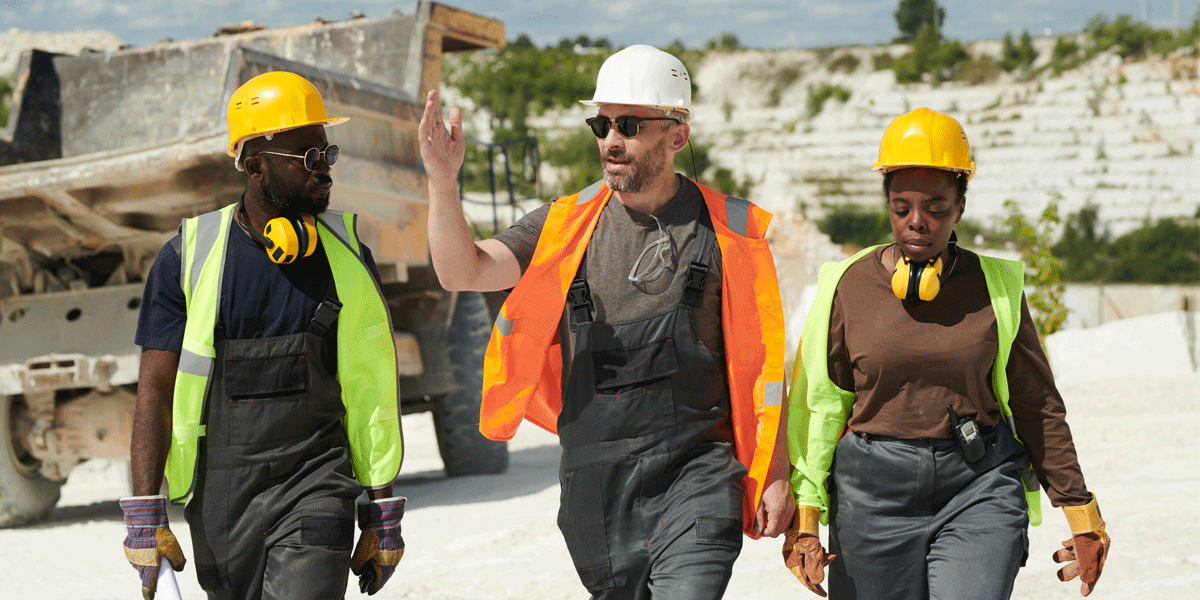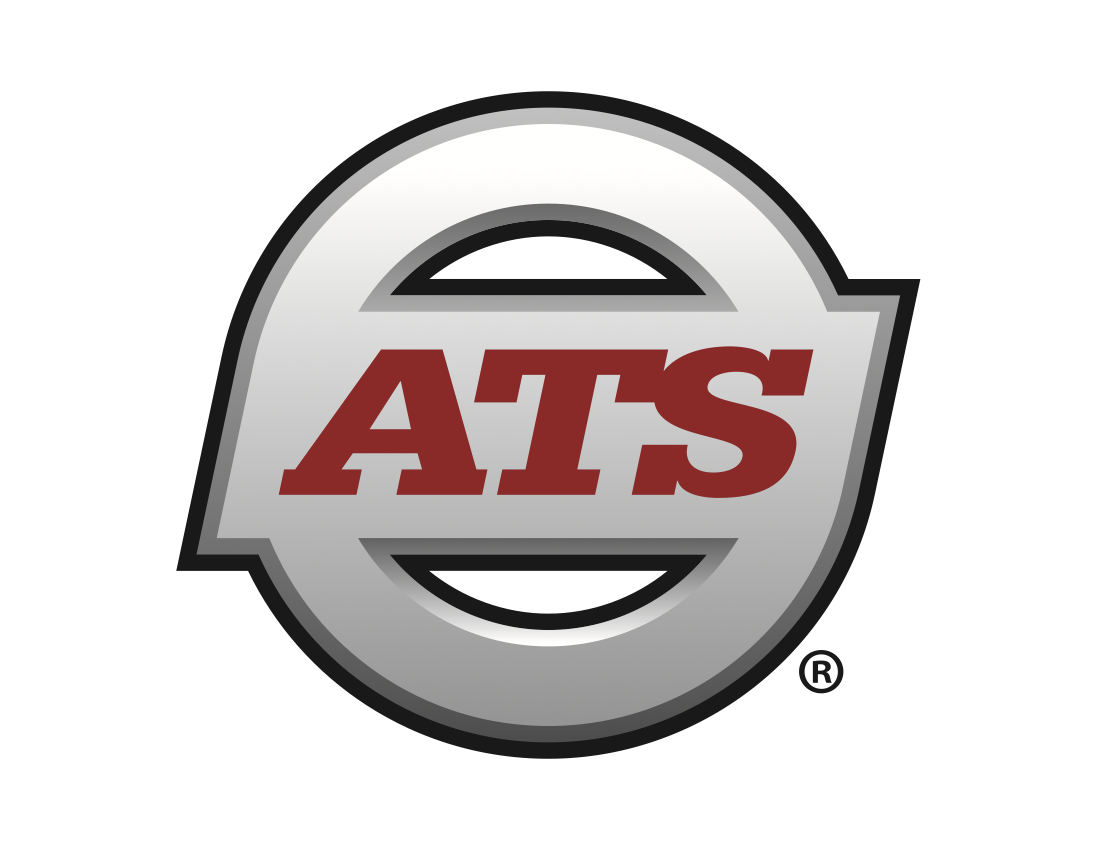Deciding between trucking and construction is a choice many people face. It's not uncommon to see truck drivers who started in construction, and just as frequently, drivers leave trucking to return to construction. This can leave many wondering, "Which industry is right for me?"
To help answer this question, we reached out to a few experts on the fleet: the Anderson Trucking Service (ATS) drivers who have a background in construction.
Using their unique perspective, we’ll break down the pros and cons of each industry — providing valuable insights to help you decide which path may be best for you.
Trucking Pros
Trucking is more than just a job — it’s an opportunity to build a rewarding professional life without the need for a traditional degree. Whether you’re looking to earn good money, explore new places, or simply love the open road, driving offers a path to success that’s accessible and fulfilling.
Good Pay
Truck drivers can earn a solid income, particularly those who haul specialized freight or drive long distances over-the-road (OTR).
It’s estimated that the average OTR truck driver can earn upwards of six figures each year. This provides stability and can help you reach your financial goals.
The best of the best heavy haul drivers, team drivers, and owner-operators can easily take home over $200,000 per year.
No Formal Education Required
Don’t want to go to college? You don’t have to! As a truck driver, you don’t need a college degree.
You will, however, need a commercial driver’s license (CDL) that you can earn by attending trucking school. The duration of trucking school varies, but it’s typically not more than a few months long. That makes trucking an accessible option.
Plus, a lot of trucking companies will pay your way through school if you commit to driving for them for a set period.
See the Country
Truck drivers often have the opportunity to travel across the country, experiencing new places and scenic routes. If you enjoy traveling, this is one way to do it!
Independence
Truck drivers get to experience the freedom of the open road. They aren’t clocking in and out of an office every day. If you like to work independently and be on your own for most of the time, trucking might be the opportunity for you. Other than talking to your dispatcher and customers here and there, you won’t have a ton of face-to-face interactions on the job.
Do Something You’re Passionate About
Many truck drivers grew up with a family member who was in the business. They may have memories of riding alongside a grandfather or parent. Growing up in trucking can build a passion for it. For those who enjoy driving and being on the road, trucking can be fulfilling.

Trucking Cons
Trucking might seem like a dream for those who crave independence and the road free and clear before them, but it can be a tough business. Let’s discuss the cons.
The Market is Tough Sometimes
Trucking can be unpredictable. Freight demand fluctuates, and drivers must adapt to market changes. One quarter you can be making more than you’ve ever made, and the next quarter rates drop and you’re working harder than ever for less money.
It can be tough to navigate the lulls of the market (though seasoned professionals have plenty of tips to help).
You’re Away From Home a Lot
Trucking, especially OTR driving, often requires extended time away from home, which can be challenging for family life. It’s no secret that the divorce rate is high among truck drivers. In fact, it’s the industry with the second-highest divorce rate.
If you have kids at home, it can be especially difficult if you only see them every few weeks.
Being away from home can also make it difficult to stick to a healthy diet. Because you’re always on the road, the food you have access to isn’t always the healthiest. It can also be difficult to find time to exercise.
Strict Regulations to Follow
The trucking industry is heavily regulated, with numerous rules and compliance standards that drivers must follow.
A Future of Uncertainty
It seems like robots can take a lot of our jobs these days, and trucking isn’t going untouched. The rise of automation and changes in the logistics industry could affect job stability in the long term.
Why can’t artificial intelligence (AI) do our laundry and dishes instead?
Construction Work Pros
It’s time to talk about construction work! With the AI boom taking the jobs of many, construction is one thing that’s relatively safe right now. Not only can you advance, but you have the opportunity to work in adjacent stable fields, like HVAC and plumbing.
Do Something You’re Passionate About
If you enjoy building and working with your hands, construction can be highly satisfying. Many people stay in construction because they simply love the work and seeing something going from nothing to something beautiful.
No Formal Education Required
Similar to trucking, most construction jobs don’t require a college degree. Practical skills and experience often outweigh formal education. It is, however, highly recommended that you complete an apprenticeship program if possible. This combines class work and formal training and can take a couple years.
If you want to move up the ladder to become a construction manager, a degree may be helpful.
Good Pay
Construction work can offer competitive wages, particularly for skilled trades such as electricians, carpenters, and heavy equipment operators. A construction worker in the U.S. today can make upwards of $70,000 per year.
Job Stability
The construction industry tends to be stable, with a consistent demand for skilled labor. After all, we need safe places to work and live, so new homes and buildings will always need to be built.
Stay Fit
The physical nature of construction work helps maintain fitness and health, which can be an added benefit for those who prefer an active job. You’ll be on your feet doing hard labor day after day. It can be physically demanding, but construction workers tend to be in good shape because of this.
Construction Work Cons
While construction work can be rewarding, it can also be very tough. Let’s talk about the cons.
Physically Demanding Work
Construction jobs are labor-intensive and can be physically demanding, which may not be suitable for everyone. As we mentioned above, you’re going to be on your feet all day or bending and moving in awkward positions. It can take a toll on your body.
Long Hours
The workday for a construction worker can be long, particularly during peak seasons or when working to meet project deadlines. By the time you get home to your family at night, you may just want to eat and go to sleep.
Working in Tough Weather Conditions
Construction workers often have to work in various weather conditions, including extreme heat, cold, or rain, which can be uncomfortable and challenging. This is something that, again, can take a toll on your body.

Key Comparisons: Trucking vs. Construction
Now that you know the pros and cons of each, which industry should you choose?
Let's compare some key factors to help you decide which path might be right for you.
Pay
Both trucking and construction offer competitive pay, but the specifics can vary widely based on location, experience, and specialization. For example, truck drivers with specialized skills or endorsements (like hazardous materials) may earn well over six figures, while skilled trades in construction (such as electricians or welders) also command higher wages.
Benefits
Benefits can vary significantly depending on the company/type of opportunity. Trucking companies may offer health insurance, retirement plans, and paid time off, while many construction firms provide similar benefits. However, independent contractors in either industry may need to secure their own benefits.
Stability (Seasonality)
Trucking and construction both experience some degree of seasonality. Trucking is year-round, though freight demand may fluctuate with economic conditions. That means you can run all year, but it might slow down a bit during the colder months.
However, the future of some areas of trucking is unknown due to automation and self-driving trucks. The construction industry isn’t facing those same challenges (yet).
Construction work often slows during colder months in some regions but generally offers a stable path due to the ongoing need for new buildings, infrastructure, and renovations. Depending on the type of construction work you do, you may not have many projects at all during certain times of the year and you’ll have to pivot.
Job Physicality
Overall, working in construction is generally more physically demanding than trucking, where you spend most of your day sitting behind the wheel. However, if you’re in specialized divisions, you’ll have to secure and tarp your freight, which is incredibly physically demanding.
Make Your Choice
Both industries offer rewarding opportunities with unique benefits and challenges. Ultimately, choosing between trucking and construction comes down to your personal preferences, business goals, and family considerations.
If you enjoy being on the road and are excited about the prospect of seeing new places, trucking might be the right fit. However, keep in mind the potential challenges of being away from home for extended periods. For those with families, this time away could be a significant consideration.
On the other hand, if you prefer to work with your hands, enjoy building things, and want the opportunity for advancement in a stable industry, construction could be a better choice. While the work is physically demanding, you won’t typically be away from home for long periods, which can be a major advantage for those prioritizing family time.
Choosing Trucking
If you’re leaning toward trucking, you can check out the opportunities we have here at ATS.

